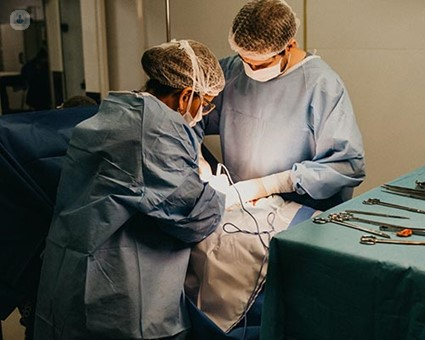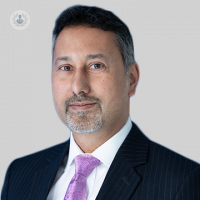Frequently asked questions about endoscopy: part 1
Written by:In the first article of a two-part series, esteemed consultant Professor Shahid Khan reveals the answers to some commonly asked questions about endoscopy, including the differences between gastroscopy and colonoscopy and what to expect during the endoscopy procedure.

What is the difference between gastroscopy and colonoscopy, and why are these procedures recommended?
Gastroscopy and colonoscopy are both forms of endoscopy, a medical procedure involving the use of a camera to examine the interior of the gastrointestinal tract. The camera, approximately the size of a pen, is flexible and employs fibre optic cables. During a gastroscopy, the patient lies on their left side as the camera is inserted through the mouth, passing over the tongue, down the oesophagus, and into the stomach, eventually reaching the duodenum (the initial part of the small intestine). This procedure, known as upper gastrointestinal (GI) tract examination, allows for direct visualisation and can identify issues such as ulcers, inflammation, strictures, and abnormalities. Biopsy samples can also be taken for analysis.
Gastroscopy typically takes around 10 minutes and may involve conscious sedation using medications like midazolam and fentanyl to enhance relaxation. It is commonly recommended for individuals experiencing symptoms like abdominal pain, nausea, vomiting, acid reflux, difficulty swallowing, anaemia, or dark stools, as it helps diagnose conditions affecting the upper GI tract.
On the other hand, a colonoscopy examines the lower end of the gastrointestinal tract—the colon. The procedure involves a flexible, camera-equipped tube, similar in diameter to a pen, which is inserted through the rectum and navigated throughout the colon. A colonoscopy lasts approximately 30 to 40 minutes on average, and requires thorough bowel preparation, including dietary changes and the use of bowel preparation powders to empty the colon.
What can I expect during the endoscopy procedure, including any potential discomfort or side effects?
A gastroscopy is a relatively brief procedure lasting approximately 10 minutes, and most individuals can endure it reasonably well without sedation. However, many people find it more tolerable with a mild sedative, though the choice to use sedation is ultimately up to the patient, as it is a patient choice and everyone responds differently.
On the other hand, a colonoscopy typically takes an average of 30 to 45 minutes, sometimes even longer. The extended duration is primarily due to the greater length of the colon compared to the stomach, which the gastroscopy examines.
While the endoscope's insertion into the bowel is not inherently painful, the colon's convoluted structure, with several bends, can result in discomfort during the procedure.
The level of discomfort depends on each person, and is influenced by the degree of bendiness in the individual's colon. Some people have straightforward, less-bendy colons, making the procedure faster and less uncomfortable, while others may experience more discomfort due to lengthy and bendy colons. As a result, it is challenging to predict the level of discomfort.
Given the potential for discomfort, the recommendation is to be open to the option of sedation. Many medical facilities require an escort for patients receiving sedation, as the wooziness post-sedation can impede safe independent travel home. If a patient decides against sedation, it is advisable to arrange for someone to accompany them on the day of the procedure. This ensures that, if discomfort arises during the colonoscopy, the patient can opt for sedation without having to abandon the procedure and repeat the entire process.
For those undergoing a colonoscopy for the first time, it is acceptable to initially undergo sedation if the patient wishes to do so. However, having a contingency plan is crucial, such as having someone available to serve as an escort in case sedation becomes necessary. This precaution prevents the potential need to reschedule the procedure, repeat the bowel preparation, and endure the associated challenges multiple times. While some individuals have successfully undergone colonoscopies without sedation, the unpredictability of the experience on the day suggests having a backup plan in place for a smoother and more comfortable overall process.
If you would like to book a consultation with Professor Khan, simply visit his Top Doctors profile today.


